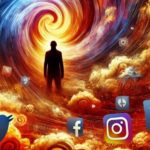In a digital landscape where content spreads like wildfire, few events have captivated and divided audiences quite like the recent leak involving social media sensation Hannah Owo. As whispers of a private video began circulating online, curiosity turned into a viral frenzy that has left fans and critics alike buzzing with intrigue. But what lies beneath the surface of this scandal? Join us as we embark on an in-depth exploration of the Hannah Owo OnlyFans leak—its origins, its impact on her career, and why it sparked such heated conversations across platforms. Whether you’re here for the tea or seeking to understand the broader implications of privacy in our hyper-connected world, this deep dive promises to uncover all you need to know about one of 2023’s most talked-about phenomena!
Introduction to the Hannah Owo OnlyFans Leak and its viral impact
The internet is buzzing, and at the center of it all is Hannah Owo and her recent OnlyFans leak. This viral phenomenon has captured the attention of countless social media users, igniting conversations that span from personal privacy to digital ethics. As videos circulate and opinions fly, many are left wondering: what does this mean for both Hannah Owo as an individual and the broader landscape of content creation? Dive into this exploration where we unravel the layers behind the leak, its implications, reactions, controversies, and more in a world where online presence can shift in a heartbeat.
Who is Hannah Owo and what is OnlyFans?
Hannah Owo, a prominent figure in the digital landscape, has garnered significant attention for her engaging online presence. Known for her captivating content across various platforms, she combines creativity with an authentic connection to her audience.
OnlyFans is a subscription-based platform that allows creators like Hannah to share exclusive content with their fans. Launched in 2016, it quickly gained popularity among adult entertainers and influencers seeking financial independence through direct fan support.
The appeal of OnlyFans lies in its flexibility. Creators can set their own prices and provide personalized experiences for subscribers. This model empowers individuals to monetize their unique talents while fostering intimate connections with supporters.
As more creators join the platform, it continues transforming traditional media consumption and ownership dynamics. For many like Hannah Owo, it’s not just about income; it’s about building a community around shared interests and passions.
How did the leak happen and why is it significant?
The Hannah Owo OnlyFans leak has sparked widespread attention. It appears that unauthorized access to her private content led to the viral spread of explicit videos and images. Many speculate on how this breach occurred, whether through hacking or a lapse in personal security.
This incident holds significant implications for both creators and platforms like OnlyFans. It raises critical questions about privacy, consent, and the responsibilities of content-sharing platforms in protecting their users’ data.
Moreover, it highlights the vulnerabilities that many influencers face when sharing intimate aspects of their lives online. As fans consume more digital content, concerns regarding safety are becoming increasingly urgent. The ripple effects of such leaks extend beyond individual creators; they can shape societal views on online intimacy and trust within digital spaces.
The legal implications of the leak for Hannah Owo and OnlyFans
The leak of Hannah Owo’s content raises complex legal questions for both her and OnlyFans. When private material is shared without consent, it often constitutes a violation of privacy laws. This can set the stage for potential lawsuits.
For Hannah, this breach not only affects her personal brand but also endangers her safety and mental well-being. The emotional distress stemming from such violations can be significant, leading to ongoing legal battles.
OnlyFans faces scrutiny as well. As a platform that hosts adult content, they have a responsibility to protect creators’ rights and privacy. If they fail to implement adequate security measures, they could face backlash from users and even regulatory consequences.
Navigating these waters involves understanding digital rights in an age where information spreads rapidly across platforms—often with little regard for individual consent or ownership.
The social media reactions to the leak and its impact on society
The Hannah Owo OnlyFans leak sparked a whirlwind of reactions across social media platforms. Users flocked to Twitter, Reddit, and TikTok to express their opinions, creating a tapestry of discussions that ranged from outrage to support.
Many fans rallied around Hannah, condemning the violation of her privacy. They highlighted the need for better protections for content creators in an increasingly digital world. This sentiment resonated with those advocating for online safety and respect.
Conversely, some individuals chose to engage in victim-blaming. This backlash underscored ongoing societal issues regarding consent and accountability in sharing personal content online. It ignited debates on how society views women who monetize their bodies versus those who consume that content.
As conversations unfolded globally, they revealed deep-rooted attitudes toward sexuality and autonomy. The incident became more than just a scandal; it turned into a reflection of prevailing cultural norms surrounding gender dynamics in the age of social media.
The controversies surrounding the leak, including victim-blaming and online harassment
The release of Hannah Owo’s content stirred significant backlash. Much of the conversation took a dark turn, focusing on victim-blaming rather than accountability for the leak itself. Critics often questioned her choices and motives, deflecting attention from those who violated her privacy.
Online harassment escalated quickly. Social media platforms became battlegrounds where trolls aimed their vitriol at Hannah. Many users exploited the situation to spread rumors or make disparaging comments about her character.
This dynamic reflects a troubling trend in society—a tendency to shift blame onto victims instead of addressing the actions of perpetrators. Such behavior not only affects individuals like Hannah but also highlights broader issues regarding consent and personal autonomy online.
In this digital age, discussions surrounding such leaks should center on protecting creators rather than shaming them for their work or lifestyle choices.
The rise of OnlyFans as a platform for content creators and its impact on traditional media
OnlyFans has transformed the landscape for content creators. Established to offer a subscription-based model, it empowers individuals to monetize their work directly from fans.
This shift allows artists, influencers, and adult entertainers to bypass traditional media gatekeepers. They can connect with audiences on their terms, leading to greater creative freedom.
Traditional media often struggles with adaptability in the digital age. As platforms like OnlyFans rise in popularity, conventional outlets face challenges attracting younger viewers who prefer authentic connections over edited content.
Moreover, this phenomenon encourages niche markets. Creators cater directly to specific interests and communities that mainstream media may overlook.
The success of OnlyFans highlights a growing demand for personal engagement. Audiences are eager for real experiences rather than polished productions—an insight traditional media must recognize if they hope to evolve alongside these changing dynamics.
Alternatives to OnlyFans for monetizing content creation
Content creators looking for alternatives to OnlyFans have plenty of options. Platforms like Patreon offer tiered subscriptions, allowing fans to support their favorite creators in exchange for exclusive content and perks.
Ko-fi is another popular choice, enabling artists and influencers to receive donations or sell digital products directly. This platform emphasizes one-time payments rather than ongoing subscriptions.
For those focused on video content, platforms like Vimeo OTT provide a way to monetize videos through rentals or purchases. Creators can maintain more control over their work while generating revenue.
Additionally, Substack focuses on written content, allowing writers to set up paid newsletters. This model not only monetizes writing but also builds a direct relationship with subscribers.
Exploring these alternatives can help diversify income streams while maintaining creative freedom and connection with audiences.
Conclusion: What can we learn from the Hannah Owo OnlyFans Leak?
The Hannah Owo OnlyFans leak serves as a significant case study in the evolving landscape of digital content creation and online privacy. It highlights the vulnerabilities that creators face in an increasingly interconnected world, where personal boundaries can easily be breached.
This incident has sparked discussions about consent and ownership over one’s own content. It raises questions about how society views individuals who choose to share intimate aspects of their lives for financial gain. The backlash faced by Hannah Owo is indicative of larger societal issues related to victim-blaming and harassment, which need serious attention.
Moreover, this event shines a spotlight on platforms like OnlyFans that offer new avenues for income but also come with risks. As more people explore these platforms, it’s essential to consider both their potential and pitfalls. There are alternatives available too, allowing creators to monetize their work while maintaining control over their intellectual property.
Ultimately, the situation surrounding the Hannah Owo leak reminds us all of the importance of empathy and understanding in our digital interactions. Building a supportive online community could pave the way for healthier conversations around such topics moving forward.






